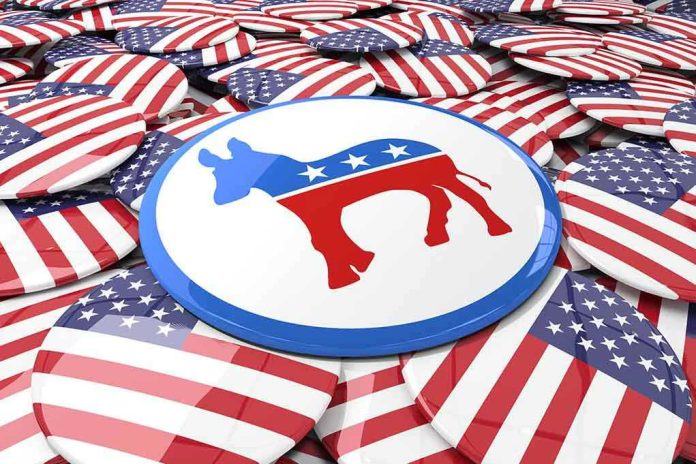
America’s foundational system of capitalism faces its steepest decline in public favor, as a new poll signals a rising tide of support for socialist ideas—raising pressing questions about the nation’s values and future direction.
Story Snapshot
- Gallup poll finds just 54% of Americans now view capitalism positively—a record low.
- Support for socialism holds steady or rises, especially among young adults and Democrats.
- Generational and partisan divides deepen, fueled by inflation, wage stagnation, and wealth concentration.
- Progressive politicians gain momentum as trust in big business erodes and public debate intensifies.
Gallup Poll Reveals Historic Shift in Economic Attitudes
The latest Gallup survey, conducted in August 2025 and released in September, shows only 54% of Americans view capitalism favorably—the lowest mark since tracking began in 2010. This shift accompanies a steady or slightly increased 39% positive response to socialism, highlighting a growing willingness among segments of the population to consider alternatives to the free-market system. The data reflect not only raw numbers but a deepening divide between age groups and political affiliations regarding the nation’s economic future.
Generational and partisan splits are at the center of the findings: younger adults and Democrats are driving the turn away from capitalism, with only 43% of young adults rating it positively compared to 49% who now express a favorable view of socialism. Among Democrats, two-thirds now view socialism positively. In contrast, Republicans and older adults remain strongly supportive of capitalism, underscoring a widening rift that is reshaping debates over economic and social policy.
Economic Pressures Accelerate Ideological Realignment
The plunge in capitalism’s favorability occurs against a backdrop of high inflation, stagnant wages, and a growing wealth gap—the top 0.1% of Americans now control over five times the wealth of the bottom 50%. These economic pressures have left many working-class families frustrated and anxious about the future. Progressive politicians, such as Bernie Sanders and Alexandria Ocasio-Cortez, have seized on this discontent, advancing policy platforms centered on wealth redistribution, expanded social programs, and regulatory reforms—ideas that, just a decade ago, would have been considered fringe in mainstream American politics.
Meanwhile, the business community faces mounting reputational challenges, particularly among large corporations. Gallup reports only 37% of Americans now view big business positively, a sharp decline compared to previous years. Small businesses, however, remain a rare point of consensus, with an overwhelming 95% favorability rating. This divergence suggests that while Americans are skeptical of corporate power and concentrated wealth, they continue to support the entrepreneurial spirit and local economic independence that have long been pillars of conservative thought.
Political Consequences and the Rise of Progressive Influence
The political ramifications of these trends are already materializing. Zohran Mamdani, a self-described Democratic socialist, recently secured the Democratic nomination for New York City mayor, signaling the growing clout of socialist-leaning candidates in high-profile races. High-profile rallies led by progressive leaders in traditionally conservative regions further illustrate the shifting landscape. In the short term, these developments fuel heated debates over issues such as wealth taxation, healthcare, housing, and corporate regulation—topics that directly impact American families and the business environment.
Longer-term implications could be even more profound. If these trends persist, party platforms—particularly among Democrats—may realign to reflect greater acceptance of socialist policies, while conservatives may need to double down on defending free enterprise, individual liberty, and limited government. The business sector will likely adapt its messaging and practices to address public skepticism, while political polarization deepens as progressive and populist movements gain traction across generations.
This polling shift likely reflects growing frustration with systemic inequalities rising costs, wage stagnation, and a sense that capitalism isn’t serving everyone equally. As more Americans, particularly Democrats and Independents, grow disillusioned. https://t.co/aZclttb6c4
— Bitternesstojoy (@Bitternesstojoy) September 8, 2025
Despite rising openness to socialism among certain groups, it remains a minority position nationwide. Most Americans still overwhelmingly support small business and free enterprise, suggesting that calls for sweeping systemic change face significant cultural and political hurdles. Experts caution that the meaning of “socialism” varies widely among respondents, which could complicate the interpretation of polling data and the policy debates that follow.
Sources:
Favorability on the decline: Gallup capitalism poll | Washington Examiner
54 percent Americans view capitalism positively: Gallup | American Bazaar Online
Big business, capitalism hit 15-year low in popularity among Americans | Business Insider
Image of Capitalism Slips to Record Low in U.S. | Gallup News
Americans’ support for capitalism slips, socialism stable | Axios



